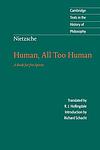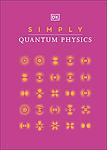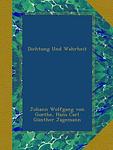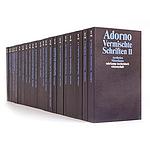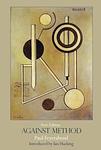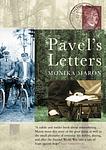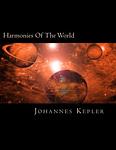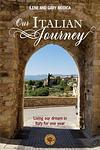The Greatest German "Nonfiction" Books of All Time
Click to learn how this list is calculated.
This list represents a comprehensive and trusted collection of the greatest books. Developed through a specialized algorithm, it brings together 305 'best of' book lists to form a definitive guide to the world's most acclaimed books. For those interested in how these books are chosen, additional details can be found on the rankings page.
Genres
Countries
Date Range
Reading Statistics
Click the button below to see how many of these books you've read!
Download
If you're interested in downloading this list as a CSV file for use in a spreadsheet application, you can easily do so by clicking the button below. Please note that to ensure a manageable file size and faster download, the CSV will include details for only the first 500 books.
Download-
51. On War by Carl Von Clausewitz
This book is a comprehensive analysis of warfare, written by a Prussian military theorist. It discusses the philosophical aspects of war, such as its political nature and purpose, as well as its practical aspects, such as strategy and tactics. The author argues that war is an extension of politics by other means and that its ultimate objective is to compel the enemy to fulfill our will. He also introduces the concept of "friction" in war, which refers to the unpredictable factors that can affect the outcome of military operations.
The 3791st Greatest Book of All Time -
52. Sudelbücher by Georg Christoph Lichtenberg
"Sudelbücher" is a collection of thoughts, observations, and philosophical reflections by a prominent German satirist. The book is a compilation of his personal notebooks, where he jotted down everything from scientific observations to social commentary and personal introspection. The author's unique perspective and witty voice provide a fascinating glimpse into the mind of an 18th-century scholar, making this book an important piece of German literature and Enlightenment thought.
The 3791st Greatest Book of All Time -
53. Human, All Too Human by Friedrich Nietzsche
This philosophical work delves into the human condition, exploring the nature of human emotions, cultural biases, and societal norms, while challenging traditional views of morality, truth, and freedom. The text examines the influence of religious and philosophical systems on human behavior, arguing that these systems often suppress individuality and creativity. The work also explores concepts such as the will to power and the eternal recurrence, ultimately promoting the idea of self-overcoming and the creation of new values.
The 3791st Greatest Book of All Time -
54. The Twilight of the Idols and The Antichrist by Friedrich Nietzsche
"The Twilight of the Idols and The Antichrist" is a philosophical work that critiques the moral and religious values of Western society. The author argues that these values, particularly those of Christianity, are not only false but harmful to society, as they suppress human instincts and hinder humanity's progress. He proposes a new moral system based on individual strength, intellectual honesty, and the affirmation of life, and criticizes the belief in an afterlife. The book is a radical critique of established religion and morality, and a call for a reevaluation of values.
The 3791st Greatest Book of All Time -
55. Ideas by Edmund Husserl
This philosophical work delves into the complex realm of phenomenology, exploring the intricate relationship between consciousness and the objects of its awareness. The author systematically unpacks the concept of intentionality, the idea that consciousness is always consciousness of something, and introduces the method of phenomenological reduction as a means to study the essential structures of consciousness. Through a rigorous examination of the acts of consciousness, including perception, imagination, and judgment, the text seeks to lay bare the foundational elements of human experience, arguing for a direct investigation into the phenomena as they present themselves to consciousness, free from presuppositions. This exploration aims to establish a solid groundwork for understanding the nature of reality as it is experienced, emphasizing the importance of subjective experience in the constitution of the world.
The 4065th Greatest Book of All Time -
56. Truth And Method by Hans-Georg Gadamer
This philosophical work delves into the nature of human understanding, arguing against the view that knowledge is solely derived from scientific method. Instead, it posits that truth and meaning emerge from historical and cultural contexts, emphasizing the importance of dialogue, language, and tradition in shaping our comprehension of the world. The text critiques the objectivity claimed by Enlightenment thinkers, proposing a hermeneutic approach that acknowledges the subjective nature of interpretation and the interplay between the interpreter and the subject matter. Through this lens, the author explores the dynamics of understanding across various disciplines, including art, history, and the human sciences, ultimately advocating for a fusion of horizons where past and present meanings merge.
The 4125th Greatest Book of All Time -
57. Uncertainty Principle by Werner Heisenberg
"Uncertainty Principle" is a seminal work in quantum mechanics that explores the concept that it's impossible to simultaneously measure the exact position and momentum of a particle. This principle has profound implications for our understanding of the physical world, challenging traditional notions of cause and effect and deterministic laws of physics. The book details the development, interpretation, and implications of this principle, providing a comprehensive overview of one of the most fundamental concepts in quantum physics.
The 4151st Greatest Book of All Time -
58. Dichtung Und Wahrheit by Johann Wolfgang von Goethe
This autobiographical work offers a rich and introspective account of the author's early life, intellectual development, and the cultural milieu of the late 18th and early 19th centuries. It delves into his formative experiences, relationships, and the evolution of his thoughts and literary career. The narrative not only provides insights into the author's personal journey but also reflects on the broader human experience, exploring themes of truth, art, and the interplay between personal reality and creative expression. Through a blend of poetic storytelling and philosophical musings, the book presents a nuanced exploration of the shaping of an individual's identity and the forces that influence the creative process.
The 4151st Greatest Book of All Time -
59. Philosophy of Modern Music by Theodor Adorno
This book offers a comprehensive analysis and critique of modern music, focusing on the works of two prominent 20th-century composers. The author explores the relationship between society and music, arguing that the evolution of music reflects changing social and political landscapes. The text suggests that the dissonance and atonality in modern music reflects the alienation and disillusionment of modern society. The book is a seminal work in the field of music philosophy and is renowned for its in-depth exploration of the societal implications of musical developments.
The 4151st Greatest Book of All Time -
60. Die Totalitäre Erfahrung by Karl Dietrich Bracher
The book in question provides a comprehensive analysis of totalitarianism, exploring the political and social conditions that give rise to such regimes. It delves into the characteristics of totalitarian states, examining how they gain and maintain power through the manipulation of ideology, the use of terror, and the control of mass communication. The work also reflects on the historical instances of totalitarian governments in the 20th century, offering insights into the dangers they pose to individual freedoms and democratic structures. Through its examination of the dynamics of total control, the book serves as a warning about the fragility of democratic institutions and the constant need to defend them against authoritarian threats.
The 4604th Greatest Book of All Time -
61. The Harz Journey And Selected Prose by Heinrich Heine
This book is a captivating collection that showcases the keen observations and witty prose of one of the 19th century's most influential German poets and essayists. At its heart is a travelogue that offers a vivid account of the author's journey through the Harz Mountains, blending romantic descriptions of the landscape with sharp social commentary and personal reflections. Alongside this journey, the collection includes a selection of the author's prose, highlighting his critical essays, satirical pieces, and lyrical writings. Through these works, the author critiques the political, social, and cultural climate of his time, all while demonstrating his profound literary talent and innovative approach to narrative and form.
The 4636th Greatest Book of All Time -
62. The Apriori Foundations Of The Civil Law by Adolf Reinach
"The Apriori Foundations of the Civil Law" is a philosophical exploration of the foundational concepts and a priori principles underlying civil law. The work delves into the nature of legal obligations, property rights, and social interactions, arguing that these elements are rooted in inherent structures of human cognition and social reality rather than merely conventional or constructed systems. By examining the essential characteristics of legal phenomena, the book seeks to establish a universal framework for understanding the principles that govern legal relations and duties, independent of specific legal systems and historical contexts.
The 4688th Greatest Book of All Time -
63. Grundrisse: Foundations of the Critique of Political Economy by Karl Marx
This book is a thorough critique of capitalism as an economic system, providing a comprehensive analysis of its structure and consequences. The author delves into the nature of commodities, labor, money, and capital, and explores the complex relationships between these elements. The book also offers a critical examination of the capitalist mode of production, the division of labor, and the exploitation of the working class, arguing that these aspects of capitalism lead to social inequality and economic instability. The author advocates for a socialist system as a more equitable and sustainable alternative to capitalism.
The 4688th Greatest Book of All Time -
64. Idealism And The Endgame Of Theory by F. W. J Schelling
"Idealism and the Endgame of Theory" explores the philosophical contributions of F. W. J. Schelling, focusing on his role in the development of idealism. The book delves into Schelling's critique of his contemporaries and predecessors, including Fichte and Hegel, and examines his unique approach to nature, freedom, and identity. It highlights Schelling's influence on later philosophical thought and his relevance to contemporary debates in philosophy and theory, presenting his work as a pivotal moment in the evolution of idealist thought. The text serves as both an introduction to Schelling's philosophy and a critical re-evaluation of his place within the broader spectrum of philosophical discourse.
The 4688th Greatest Book of All Time -
65. The Foundations Of Arithmetic by Gottlob Frege
"The Foundations of Arithmetic" is a philosophical treatise that explores the concept of number and the philosophical foundations of mathematics. The work critically examines previous theories of number and develops a new approach, arguing that arithmetic is a branch of logic rather than being empirical or purely mathematical. The author introduces a rigorous system to define numbers and arithmetic operations through logical propositions, aiming to demonstrate that arithmetic truths can be derived from logical axioms and definitions. This groundbreaking perspective laid the groundwork for modern mathematical logic and had profound implications for the philosophy of mathematics and logic.
The 4688th Greatest Book of All Time -
66. Against Method by Paul Feyerabend
"Against Method" argues that science does not adhere to a strict, universal method and that the idea of a singular scientific method is a myth. The author challenges the notion that science progresses through a consistent, rule-based approach, suggesting instead that scientific breakthroughs often require creativity, non-conformity, and the breaking of rules. The book posits that the advancement of knowledge depends on anarchistic strategies that subvert rigid scientific norms, advocating for a more pluralistic, tolerant, and individualistic approach to scientific research. This perspective encourages a methodological pluralism where multiple methodologies coexist, allowing for a more diverse and dynamic scientific inquiry.
The 4766th Greatest Book of All Time -
67. Pavel's Letters by Monika Maron
"Pavel's Letters" is a poignant narrative that explores the personal journey of a novelist who uncovers her family's past in war-torn Poland. After receiving a collection of letters from her grandfather, Pavel, the protagonist delves into the history of her family, their experiences during World War II, and the hardships they faced under Stalin's regime. The book is a compelling blend of personal memories, historical facts, and the exploration of the human spirit's resilience in the face of adversity.
The 4834th Greatest Book of All Time -
68. The Theory Of Communicative Action by Jürgen Habermas
The book is a seminal work in social theory that explores the concept of communicative action, where individuals interact based on mutual understanding and pursue rational arguments, consensus, and cooperation rather than merely acting for individual success. The author critiques the instrumental and strategic action in modern societies and argues that communicative action is essential for maintaining the rationality and democratic nature of human interactions. The work delves into the structures of how language and social interaction form the basis of society and how distortions in communication can lead to social issues, emphasizing the importance of transparent and undistorted communication in achieving genuine understanding and societal cohesion.
The 4842nd Greatest Book of All Time -
69. Ethics by Dietrich Bonhoeffer
"Ethics" is a profound exploration of the moral challenges faced by individuals in a complex world. The book delves into the nature of ethical behavior, arguing that true morality arises not from following a set of rules, but from a direct relationship with God. The author discusses the concept of "responsible action," where decisions are made in response to God's call, and the importance of understanding the reality of evil and sin. Throughout, the text grapples with the tension between the ideal of absolute goodness and the practical realities that necessitate compromise and sacrifice, offering a compelling framework for ethical decision-making rooted in faith and community.
The 4916th Greatest Book of All Time -
70. Dogmatics In Outline by Karl Barth
"Dogmatics in Outline" presents a concise exploration of Christian doctrine, framed by the Apostles' Creed and derived from lectures delivered in the aftermath of World War II. The text distills the essence of Christian faith, emphasizing the centrality of Jesus Christ in theology and the importance of the Church's teaching tradition. The author argues for a dynamic and living engagement with the Christian message, rejecting both rigid orthodoxy and vague liberalism, and advocating for a theology that is both faithful to the historical teachings of the Church and responsive to contemporary human experience.
The 4916th Greatest Book of All Time -
71. The Harmony of the Worlds by Johannes Kepler
"The Harmony of the Worlds" is a scientific text that presents the author's innovative and groundbreaking theories on planetary motion. The author proposes that the movements of the planets in our solar system are not random, but rather follow precise mathematical relationships, likening these celestial patterns to harmonious musical notes. The book is a fundamental work in the history of astronomy, and it has had a profound influence on our understanding of the universe and its laws.
The 5086th Greatest Book of All Time -
72. A Woman In Berlin by Marta Hillers
The book is a powerful, anonymous diary that provides a harrowing first-person account of the final weeks of World War II in Berlin, from April to June 1945. The female author, a journalist, describes the chaos of a city under siege, the brutality of the occupying forces, and the struggle for survival faced by the women of Berlin. She candidly records the widespread rape by Soviet soldiers and the complex web of emotions, compromises, and small acts of resistance that characterized daily life during this period. The diary stands as a poignant testament to human resilience and a stark examination of the often-unspoken atrocities of war.
The 5276th Greatest Book of All Time -
73. Italian Journey by Johann Wolfgang von Goethe
The book is a classic travel memoir that chronicles the author's journey through Italy from 1786 to 1788. During his travels, he explores the rich cultural heritage, art, and history of the country, seeking to understand the influence of classical antiquity and the Renaissance on contemporary European thought. The narrative is a blend of personal reflections, detailed descriptions of the landscapes, cities, and people he encounters, as well as musings on art and literature. The author's experiences in Italy mark a significant period of personal growth and intellectual development, profoundly impacting his subsequent literary work and contributing to the broader European cultural movement known as Weimar Classicism.
The 5277th Greatest Book of All Time -
74. The Birth Of Tragedy by Friedrich Nietzsche
The book in question explores the origins and significance of ancient Greek tragedy. It presents a philosophical critique of the development of art, contrasting the Apollonian elements of structure, order, and beauty with the Dionysian aspects of chaos, passion, and instinct. The author argues that Greek tragedy arose from the synthesis of these two forces, embodying a balance that allowed for the expression of profound existential and metaphysical truths. As the work progresses, it delves into the decline of tragedy due to the influence of Socratic rationalism and the subsequent loss of a vital cultural force capable of confronting the inherent suffering of human existence. The text is both a work of aesthetic theory and a profound inquiry into the nature of human experience.
The 5277th Greatest Book of All Time -
75. The Origin Of Continents And Oceans by Alfred Wegener
"The Origin of Continents and Oceans" presents the groundbreaking theory of continental drift, proposing that the Earth's continents were once joined together in a single landmass and have since drifted apart to their current positions. The author, a meteorologist and geophysicist, supports his hypothesis with extensive geological and paleontological evidence, showing similarities in rock formations, fossil records, and climatic patterns across different continents. Despite initial skepticism from the scientific community, this work laid the foundation for the modern understanding of plate tectonics and fundamentally changed the way we think about the Earth's surface and its dynamic nature.
The 5517th Greatest Book of All Time
Reading Statistics
Click the button below to see how many of these books you've read!
Download
If you're interested in downloading this list as a CSV file for use in a spreadsheet application, you can easily do so by clicking the button below. Please note that to ensure a manageable file size and faster download, the CSV will include details for only the first 500 books.
Download

